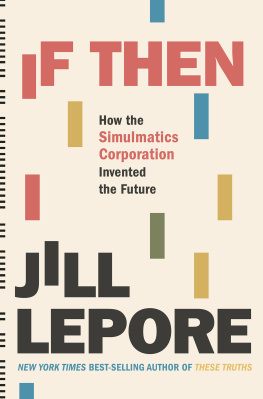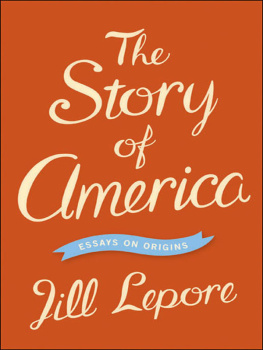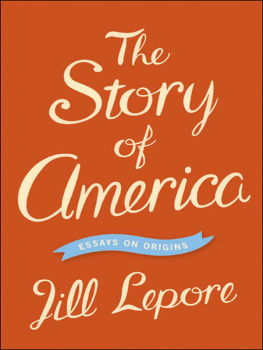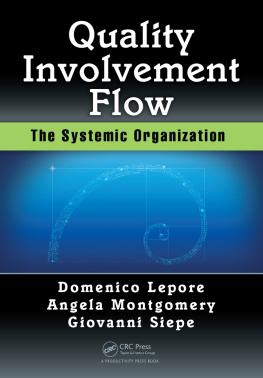Jill Lepore - If Then
Here you can read online Jill Lepore - If Then full text of the book (entire story) in english for free. Download pdf and epub, get meaning, cover and reviews about this ebook. year: 2020, publisher: Liveright, genre: Politics. Description of the work, (preface) as well as reviews are available. Best literature library LitArk.com created for fans of good reading and offers a wide selection of genres:
Romance novel
Science fiction
Adventure
Detective
Science
History
Home and family
Prose
Art
Politics
Computer
Non-fiction
Religion
Business
Children
Humor
Choose a favorite category and find really read worthwhile books. Enjoy immersion in the world of imagination, feel the emotions of the characters or learn something new for yourself, make an fascinating discovery.
- Book:If Then
- Author:
- Publisher:Liveright
- Genre:
- Year:2020
- Rating:4 / 5
- Favourites:Add to favourites
- Your mark:
- 80
- 1
- 2
- 3
- 4
- 5
If Then: summary, description and annotation
We offer to read an annotation, description, summary or preface (depends on what the author of the book "If Then" wrote himself). If you haven't found the necessary information about the book — write in the comments, we will try to find it.
If Then — read online for free the complete book (whole text) full work
Below is the text of the book, divided by pages. System saving the place of the last page read, allows you to conveniently read the book "If Then" online for free, without having to search again every time where you left off. Put a bookmark, and you can go to the page where you finished reading at any time.
Font size:
Interval:
Bookmark:
This America: The Case for the Nation
These Truths: A History of the United States
Joe Goulds Teeth
The Secret History of Wonder Woman
Book of Ages: The Life and Opinions of Jane Franklin
The Story of America: Essays on Origins
The Mansion of Happiness: A History of Life and Death
The Whites of Their Eyes: The Tea Partys Revolution and the Battle over American History
New York Burning: Liberty, Slavery, and Conspiracy in Eighteenth - Century Manhattan
A Is for American: Letters and Other Characters in the Newly United States
The Name of War: King Philips War and the Origins of American Identity
How the Simulmatics Corporation Invented the Future
Jill Lepore
.png)
Liveright Publishing Corporation
A Division of W. W. Norton & Company
Independent Publishers Since 1923
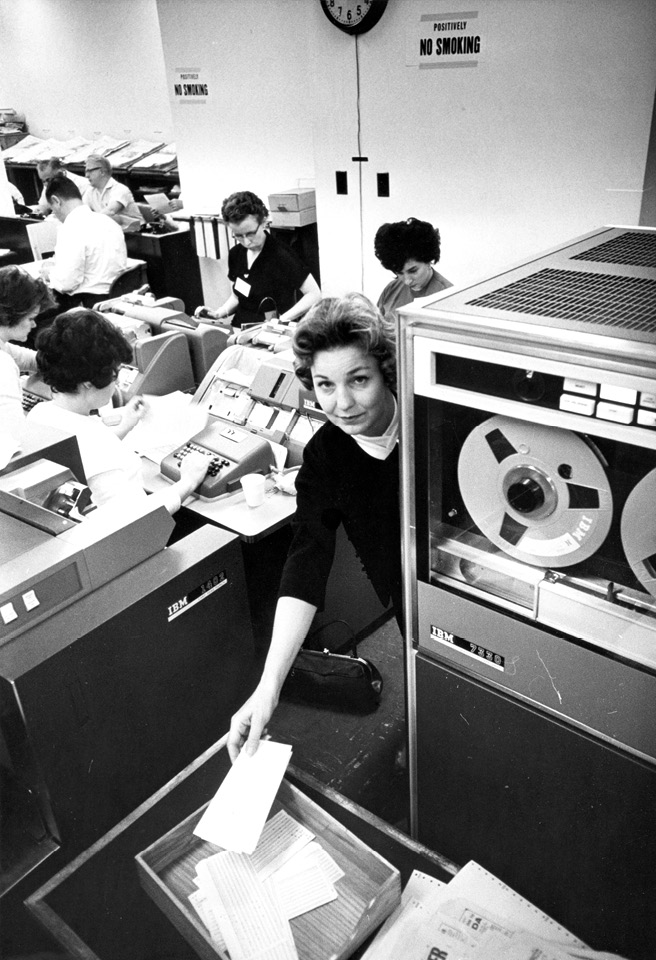
Frontispiece: Simulmatics Corporation at the New York Times, 1962.
Copyright 2020 by Jill Lepore
All rights reserved
First Edition
For information about permission to reproduce selections from this book, write to Permissions, Liveright Publishing Corporation, a division of W. W. Norton & Company, Inc., 500 Fifth Avenue, New York, NY 10110
For information about special discounts for bulk purchases, please contact W. W. Norton Special Sales at specialsales@wwnorton.com or 800-233-4830
Book design by Lovedog Studio
Production manager: Anna Oler
The Library of Congress has cataloged the printed edition as follows:
Names: Lepore, Jill, 1966 author.
Title: If then : how the simulmatics corporation invented the future / Jill Lepore.
Description: First edition. | New York : Liveright Publishing Corporation, 2020. | Includes bibliographical references and index.
Identifiers: LCCN 2020008058 | ISBN 9781631496103 (hardcover) | ISBN 9781631496110 (epub)
Subjects: LCSH: Data mining.
Classification: LCC QA76.9.D343 L47 2020 | DDC 006.3/12dc23
LC record available at https://lccn.loc.gov/2020008058
Liveright Publishing Corporation, 500 Fifth Avenue, New York, N.Y. 10110
www.wwnorton.com
W. W. Norton & Company Ltd., 15 Carlisle Street, London W1D 3BS
to T.R.L., always
The Company proposes to engage principally in estimating probable human behavior by the use of computer technology.
Simulmatics Corporation, stock offering, 1961
The mystery surrounding Simulmatics started with its name.
Statement to Simulmatics Corporation stockholders, 1966
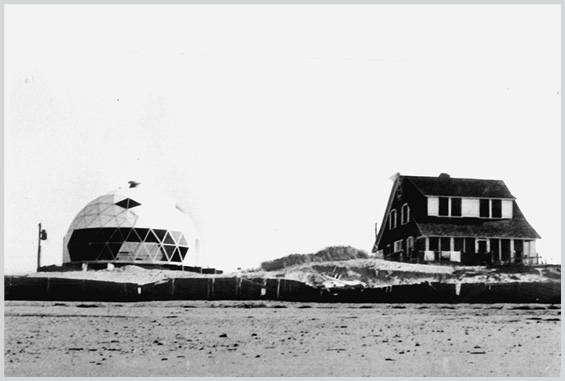 The geodesic dome in Wading River, Long Island, where Simulmatics met in 1961, with the Greenfields house to the right.
The geodesic dome in Wading River, Long Island, where Simulmatics met in 1961, with the Greenfields house to the right. The scientists of the Simulmatics Corporation spent the summer of 1961 on a beach on Long Island beneath a geodesic dome that looked as if it had landed there, amid the dunes, a spaceship gone to ground.1 Inside, they wrote mathematical formulas on blackboards. Chalk dusted their fingertips. Reams of perforated computer printouts unfurled across the floor.
The Simulmatics Corporation, Cold War Americas Cambridge Analytica, claimed credit for having gotten John F. Kennedy elected president of the United States in November 1960. Months later, its scientists spent a summer at the beach planning new projects for their invention: a computer program designed to predict and manipulate human behavior, all sorts of human behavior, from buying a dishwasher to countering an insurgency to casting a vote. They called it the People Machine.2
Hardly anyone, almost no one, remembers Simulmatics anymore. But beneath that honeycombed dome, the scientists of this long-vanished American corporation helped build the machine in which humanity would, by the twenty-first century, find itself trapped and tormented: stripped bare, driven to distraction, deprived of its senses, interrupted, exploited, directed, connected and disconnected, bought and sold, alienated and coerced, confused, misinformed, and even governed. They never meant to hurt anyone.
They were young men, the best and the brightest, fatally brilliant, Icaruses with wings of feathers and wax, flying to the sun. The scientists are from the Massachusetts Institute of Technology, Yale, Harvard, Columbia and Johns Hopkins, the New York Times reported. They are preparing to work with electronic computers, the giant question-answering devices in use for some years, but are using social and economic data and their own knowledge to work out new programs for computer simulation, the name given to the technique of acting out, so to speak, all the probabilities that might flow from a given set of circumstances.3 They wrote in a new language, FORTRAN, using an expression known as an IF/THEN statement to instruct a computer to simulate possible actions and calculate their consequences, under different conditions, again and again and again. IF this, THEN that. IF this, THEN that. IF this, THEN that, an infinity of outcomes.
To the beach that summer, they brought their wives and their children. The men wore bathing trunks and polo shirts and pondered punch cards; the women wore summer dresses and sandals and made potato salad and tuna salad and barbecue and macaroni salad and ham salad and pots of stew and piles of corn on the cob; their childrenseventeen of them in allwaded in the ocean and built sandcastles, Camelots-by-the-sea, and sailed one-masted Sunfishes and chased a black poodle named Sputnik up and down the beach and over the creek. The children got so badly sunburned that at night their mothers doused them with vinegar to cool their skin: they smelled like pickles. On rainy days, they played Monopoly, hopscotching from Park Place to the B. & O. Railroad, collecting two hundred dollars every time they passed Go, and trying, as all monopolists must, to keep out of jail. The wives traded paperback copies of Peyton Place, a steamy novel about sex and female rebellion, its pages wilted from the humidity.4 And everything, and everyone, was covered with sand, as if, if theyd stayed there long enough, theyd have been buried, like ancient Egyptians.
The sun rises, the sun sets, and still no one ever really knows what will happen next. In a world of endless uncertainty, the forecasting of the future began with the very oldest human societies. The Greeks built a shrine to the Oracle of Delphi; the Incas built a temple to the Oracle at Pachacamac. Buddhists, Muslims, Christians, Jews, every religion, every culture: all have had their prophets and their temples, their diviners, their readers of omens, their seers. Time passed, centuries, millennia. And then, beginning in the middle decades of the twentieth century, Americans began building machines meant to serve as their oracles, new seers, electronic prophets, diviners of data.
Founded in 1959, the Simulmatics Corporation established offices in New York, Washington, Cambridge, and, eventually, Saigon before it declared bankruptcy, in 1970. The company wore a cloak of intrigue. This was, in part, unintentional. The mystery surrounding Simulmatics started with its name, its president once explained to the companys stockholders. We were a contraction of two wordssimulation and automatic. Its founders hoped the name would become a watchword, a byword, like cybernetics. It did not. The obscurity of the word simulmatics is a measure of their failure. But its meaning is a measure of their ambition: to automate the simulation of human behavior.
Font size:
Interval:
Bookmark:
Similar books «If Then»
Look at similar books to If Then. We have selected literature similar in name and meaning in the hope of providing readers with more options to find new, interesting, not yet read works.
Discussion, reviews of the book If Then and just readers' own opinions. Leave your comments, write what you think about the work, its meaning or the main characters. Specify what exactly you liked and what you didn't like, and why you think so.

